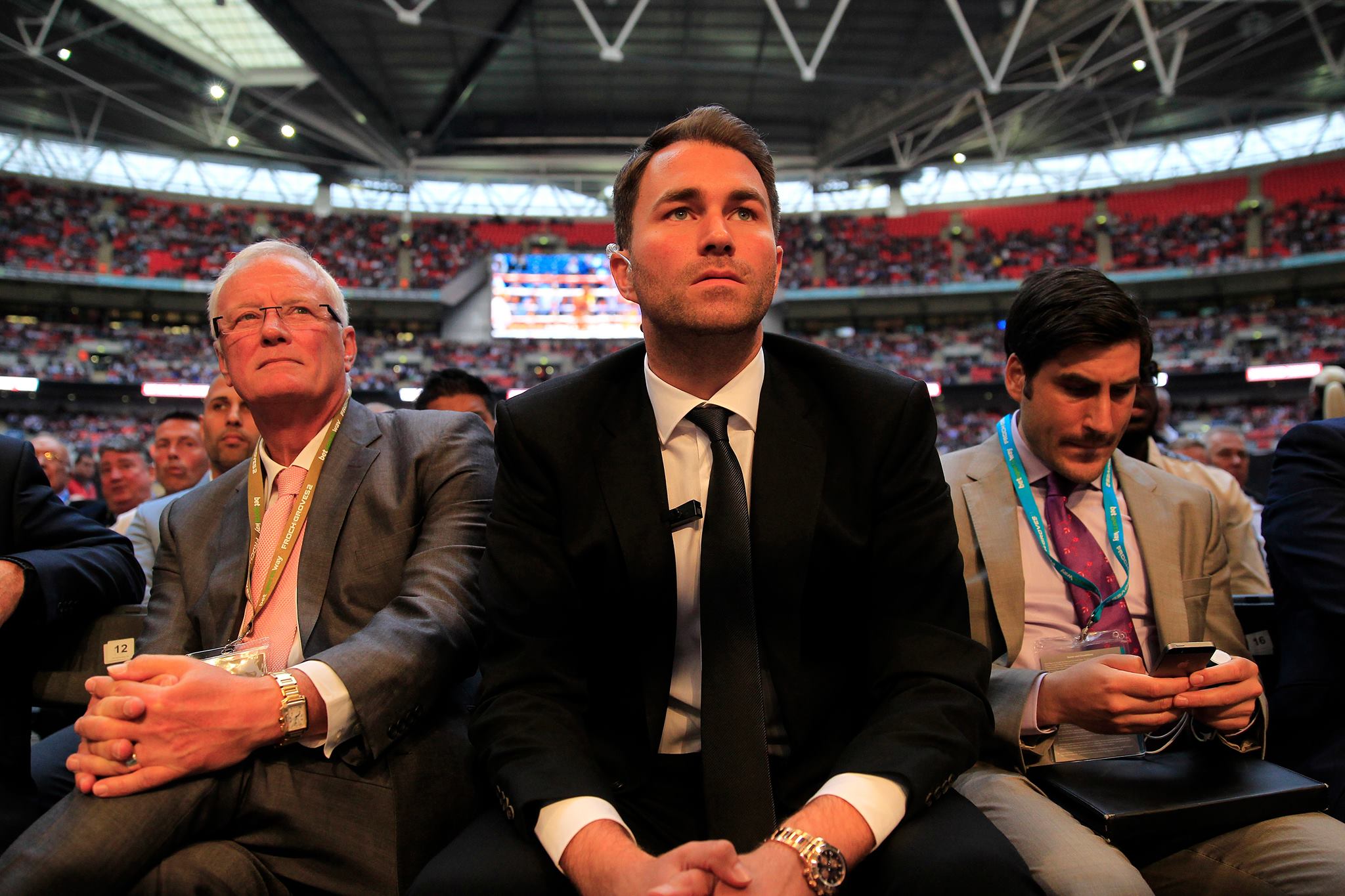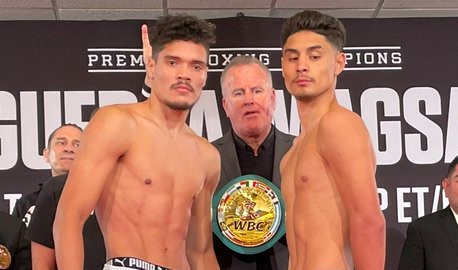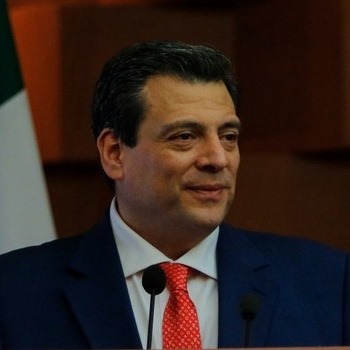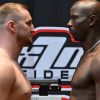By Jake Donovan
Saul ‘Canelo’ Alvarez and Gennady Golovkin have developed one of the most contentious rivalries in the sport today—so much, that even random social media discussion has somehow become headline news.
The latest twist involving the best two middleweights in the world today once again revisits the drug testing subplot, with the validity of random testing provided somehow—and falsely—called into question.
Both boxers were subject to random drug testing as administered by Voluntary Anti-Doping Agency (VADA)—a Las Vegas-based company founded by Dr. Margaret Goodman, a longtime advocate for the safety and health of boxers—surrounding their rematch this past September in Las Vegas.

The same agency was involved in their first fight one year prior, with testing at the time serving as merely a footnote. The far greater focus was on their HBO Pay-Per-View headliner ending in a highly questionable split decision draw which many felt Golovkin deserved to win.
The two camps came to terms for an agreed-upon rematch, which was due to take place this past May. However, the drug testing angle became the major focal point after Alvarez was discovered to have failed two VADA-conducted tests, both showing trace amounts of the banned substance Clenbuterol.
Even while armed with the alibi of the substance being unknowingly digested through contaminated meat—an ongoing epidemic in Alvarez’ native Mexico—the ultimate decision rendered down by the Nevada State Athletic Commission was for the superstar athlete to serve a six-month suspension, while also issuing the reminder that all athletes are responsible for what goes into their bodies regardless of means of consumption.
Alvarez took the punishment, also agreeing to enroll in year-round VADA testing which began in May. The decision served as the first step toward rescheduling his rematch with Golovkin, with the two sides going beyond their internally-imposed deadline in ultimately coming to terms to once again meet in September.
With Alvarez already enrolled, VADA agreed to create a specific testing program for the rematch, with the September 15 fight night date serving as the closing period. Alvarez won a majority decision in a fight where most ringside observers felt a draw or a close Golovkin victory was the more appropriate call, but the outcome not as contentious as was the case one year prior.
Except to the Golovkin camp.
The loss ended his reign of 20 successful defenses (which includes five defenses of an “interim” title, which some historians dismiss), tying him with Bernard Hopkins, a stakeholder in Golden Boy Promotions, Alvarez’s promoter. The post-fight drug test which followed was also supposed to end the testing period as it pertained to this bout, although Alvarez was due to remain in the program as per his contracted agreement to year-round testing which runs through May 2019.
This somehow became a topic of discussion two months after the fact.
A random discussion on social media called to question whether or not Alvarez remained enrolled in VADA’s program without interruption. The inquiry came about after the agency welcomed to the program reigning secondary super middleweight titlist Rocky Fielding, who will face Alvarez on December 15 at Madison Square Garden in New York City.
The conversation took a bizarre turn when Tom Loeffler—managing director of 360 Promotions and the driving force behind Golovkin’s career—offered a response suggesting that post-fight testing was yet another angle in the rivalry in which their side was dealt the short straw.
“VADA scheduled a random test for GGG a week after the fight,” Loeffler stated on social media. “I made sure that Canelo was also going to be tested. Next day the random test was cancelled. Strange that it was scheduled then cancelled, maybe Canelo was already in [Mexico] eating steaks celebrating his ‘decision’.”
Not only was it the wrong setting for such a pointed remark but was entirely incorrect in its implication.
The eventually canceled test was initially scheduled by the Nevada State Athletic Commission, which has often contracted VADA for testing needs. However, the decision to test both fighters that far after the fight was not made by VADA, as Golovkin’s specific obligation to the program ended on fight night.
“Tom Loeffler’s tweets regarding Golovkin/Alvarez testing are not correct,” Goodman told BoxingInsider.com via email in response to the conversation. “VADA tested both fighters many times leading up to their rematch and post-fight. Mr. Alvarez remains in VADA’s year-round testing program and subject to testing.
“Golovkin’s program ended September 15, 2018. The commission initially requested that we arrange to test both fighters again. Since many fighters travel after an event, and as Golovkin was no longer in VADA we confirmed his whereabouts. However, soon after the confirmation, the commission changed their decision.”
The decision as well as Goodman’s take were both subsequently confirmed by Golovkin’s side while offering its best efforts to walk back such comments.
“It was not VADA that cancelled the test, apparently it was the Commission,” Loeffler confirmed to BoxingInsider.com via text. “I didn’t mean to disparage VADA in any way; I’m a firm believer in what they do and that they are the best testing we have to try to prevent any banned substance use. Their testing is what showed the two positive tests for Canelo for Clenbuterol and that wouldn’t have shown up had we not started early testing with VADA.
“They cancelled the test for GGG, not sure what they did with Canelo, I just figured both were cancelled, but that information would have to come from VADA or the commission. We have insisted on VADA testing for all of the GGG fights as well as (former World heavyweight champion Wladimir) Klitschko fights in Europe and Moscow, so we believe in their testing program being effective and complimenting the WBC clean boxing program.”
Golovkin remains on the hunt for a new platform to carry his next fight and beyond. The knockout artist from Kazakhstan was among the many boxers left without a network home after HBO—the premium cable giant whom has aired all but two of his bouts since his stateside debut in 2012—announced in September that it would no longer remain in the boxing business following their final forthcoming December 8 telecast (fittingly, presented by Loeffler’s 360 Promotions). Talks are ongoing with many top players, including the top brass at ESPN, Showtime and sports streaming service DAZN, the latter with whom Alvarez signed a record-breaking contract and on which he will debut in December.
There stands a chance that their paths will once again cross. Hopefully by then, the storylines will remain limited to their in-ring rivalry and not news items that never should have been news to begin with.


















